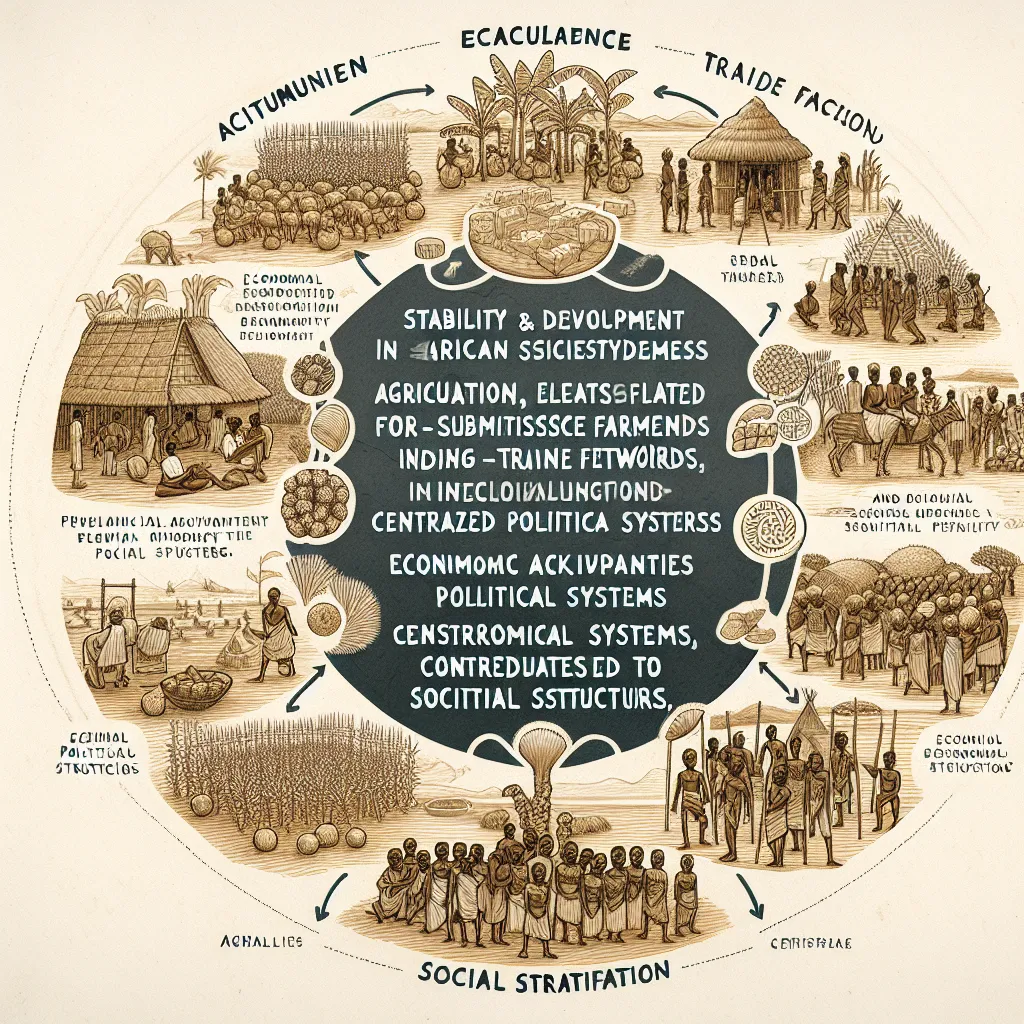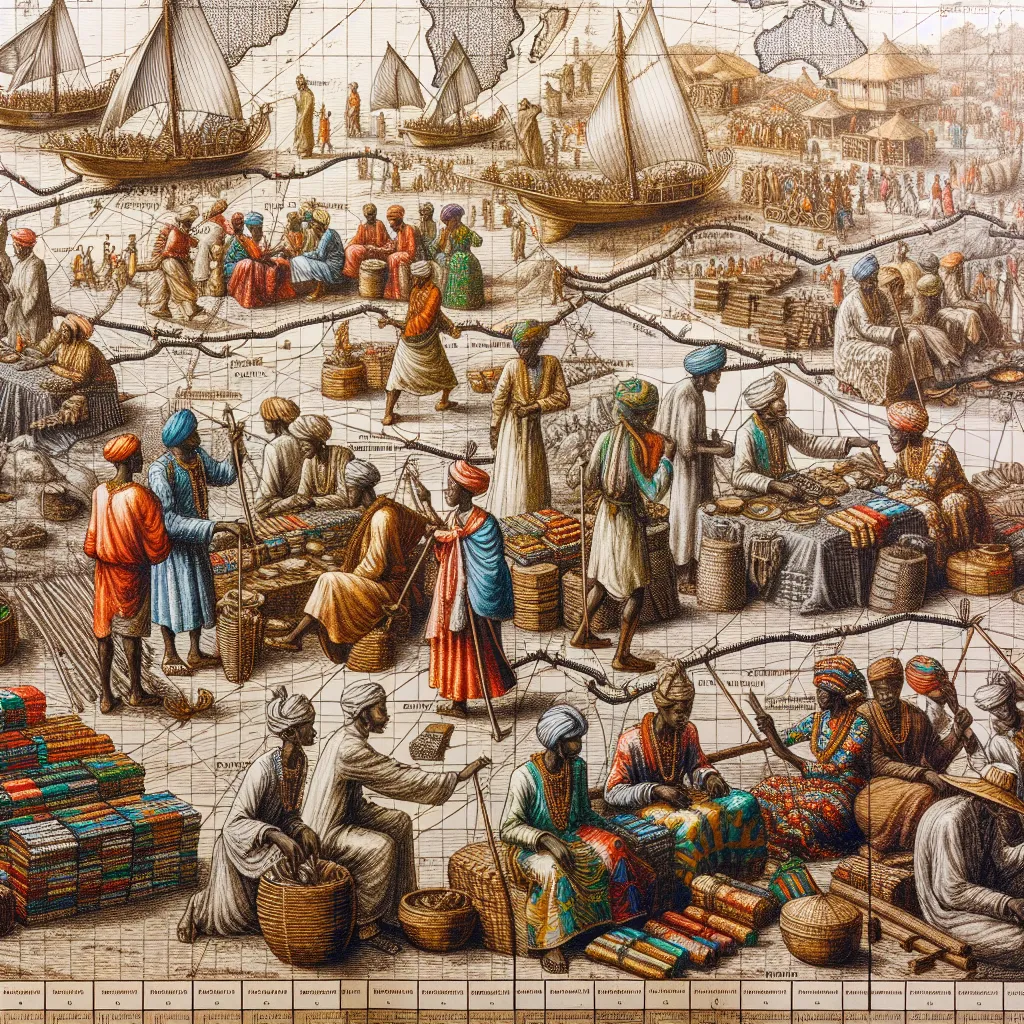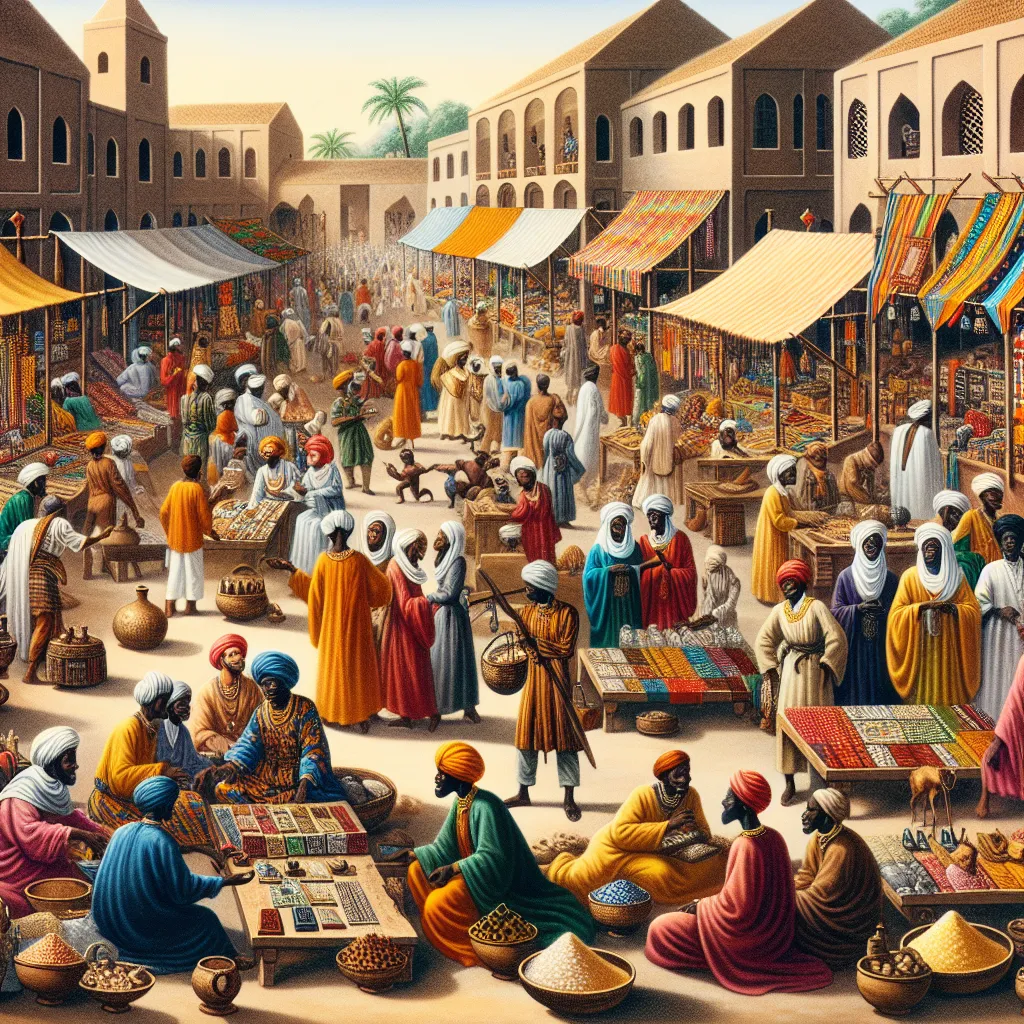Ask AI on The Internet
Question: Examine the economic system mining, of pre colonial African societies, was mining useful, how did it help in the stability and development of these societies, also give examples.Include in-text citations APA 7th referencing style and references.
Certainly! Let's examine the economic system of mining in pre-colonial African societies, its usefulness, and its role in the stability and development of these societies. ### The Economic System of Mining in Pre-Colonial African Societies #### Usefulness of Mining Mining was an integral part of the economic activities of many pre-colonial African societies. It involved the extraction of minerals such as gold, iron, copper, and salt. These resources were not only used for local craftsmanship and trade but were also essential in establishing trade networks that spanned across the continent and beyond. 1. **Gold Mining**: Gold was a highly valuable commodity, making mining a significant economic activity, especially in regions like West Africa. Gold from these regions reached far-reaching trade networks, including North Africa and Europe, through established trans-Saharan trade routes. 2. **Iron and Copper Mining**: Iron and copper were used to produce tools and weapons, which were crucial for agriculture, warfare, and everyday utilities. The Nok civilization in present-day Nigeria and Great Zimbabwe are notable examples where iron and copper mining played a key role in societal development. 3. **Salt Mining**: Salt was another essential resource, especially in areas like the Sahara Desert, where it was mined and traded extensively. It was necessary for preserving food and maintaining health, making it a highly valued trade item. #### Stability and Development of Societies Mining contributed significantly to the stability and development of pre-colonial African societies in multiple ways: 1. **Economic Prosperity**: The extraction and trade of valuable minerals like gold and salt brought wealth to many African kingdoms and empires. For instance, the wealth of the Mali Empire under Mansa Musa, one of the richest individuals in history, was largely derived from gold mining and trade (Goucher, LeGuin, & Walton, 1998). 2. **Trade Networks**: Mining facilitated the establishment of extensive trade networks. The gold from West African mines, for example, was exchanged for goods such as textiles, horses, and other luxury items from North Africa and the Mediterranean. This fostered interconnectedness and economic interdependence among different regions (McIntosh, 1980). 3. **Technological Advancements**: The need for efficient mining methods prompted technological innovations. The development and refinement of iron-smelting techniques improved both mining operations and agricultural productivity, which, in turn, supported population growth and urbanization. 4. **Political Power**: Control over mining areas and resources often translated into political power. Kingdoms and empires that controlled rich mining regions could exert influence over vast territories. The Ghana Empire, for example, controlled gold mining regions and trade routes, which solidified its power and influence (Davidson, 1998). ### Examples 1. **Mali Empire**: The Mali Empire, notably under Mansa Musa in the 14th century, was famed for its wealth derived from the plentiful gold mines of the region. The prosperity from these gold-rich economies enabled the Mali Empire to become a significant cultural and educational center, leading to historical landmarks such as the University of Timbuktu (Goucher et al., 1998). 2. **Great Zimbabwe**: The prosperity of Great Zimbabwe (11th to 15th centuries) was heavily reliant on gold mining and copper trade. These activities facilitated the growth of a sophisticated urban center known for its impressive stone constructions and complex socio-political structures (Pwiti, 1996). ### References Davidson, B. (1998). *West Africa before the Colonial Era: A History to 1850*. Longman. Goucher, C., LeGuin, C., & Walton, L. (1998). *In the Balance: Themes in Global History*. McGraw-Hill. McIntosh, S. K. (1980). *Prehistoric Investigations in the Region of Jenne, Mali: A Study in the Development of Urbanism in the Sahel*. British Archaeological Reports. Pwiti, G. (1996). *Continuity and Change: An Archaeological Study of Farming Communities in Northern Zimbabwe AD 500-1700*. University of Uppsala. From this examination, we can see that mining significantly influenced the economic stability, development, and political power of pre-colonial African societies, fostering trade networks, technological advancements, and cultural growth.
Think your answer is better than the AI's? Post it below.
Question Tags
If you want your question answered by an AI, click here.







Post your own comment: